Our History
Episcopal Community Services traces its origins back to 1894 and the Mission of the Good Samaritan, later named Canon Kip Community House, a small relief center on Second Street. For nearly a century, this mission offered services to the most vulnerable in our community. In 1983, the Episcopal Sanctuary was formed in response to a growing number of people sleeping on the streets of San Francisco. Six years later, Canon Kip and the Sanctuary merged to form Episcopal Community Services (ECS) as we know it today. Since its inception, ECS has led the way with innovative responses to addressing homelessness that honor the innate dignity and worth of all people. Today ECS has become San Francisco’s largest provider of supportive housing and homeless services, with a continuum of care that includes managing San Francisco’s Adult Coordinated Entry (ACE) system, supportive housing, workforce development and social enterprise, healthy aging services, interim housing, behavioral health services, and rapid rehousing services.

1894
THE MISSION OF THE GOOD SAMARITAN
ECS traces its origin to the Mission of the Good Samaritan, the first community welfare undertaking of the Episcopal Diocese of California. Under the leadership of the Reverend William Kip III, the center offered services for San Francisco’s most vulnerable residents and a boys’ night school “to counter the life of a homeless boy living on a dollar and a half a week." When Rev. Kip died in 1902, the center was renamed Canon Kip Memorial Mission in his memory.
1906
DESTROYED BY FIRE AND EARTHQUAKE
The Canon Kip Memorial Mission is the first diocesan entity to reopen after the 1906 earthquake and fire. Its work is divided. The clinic and day nursery remain at Second Street, while the boys’ school and immigrant services becomes the Mission of the Good Samaritan at 25th Street and Potrero Avenue.


1944
CANON KIP MISSION EXPANDS
The Canon Kip Mission, now called the Canon Kip Community House, moves to a new site at 8th and Natoma. Under the leadership of the Rev. Henry Ohlhoff, it expands its clinic, nursery, and food and clothing distribution, eventually adding youth recreation and senior services.
1975
CANON KIP SENIOR CENTER BEGINS
Canon Kip Community House extends its services to the seniors living in the surrounding neighborhood in addition to maintaining high-quality youth programs.
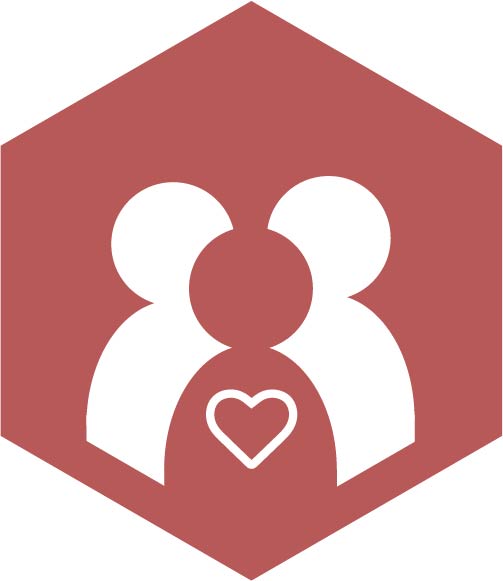
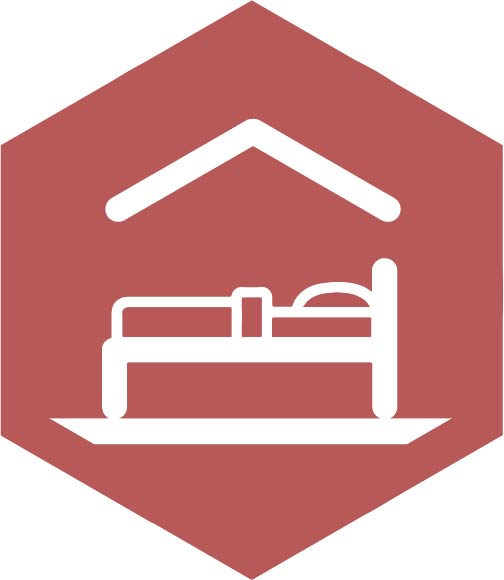
1983
A SHELTER IS STARTED...
In response to the growing number of people sleeping on the streets of San Francisco, Grace Cathedral begins sheltering 40 adults nightly in the cathedral basement, with the support of volunteers from other Episcopal parishes. The shelter becomes known as the Episcopal Sanctuary and moved to Canon Kip Community House.
1986
A NEW HOME
The Episcopal Sanctuary expands and moves to its present location at 8th and Howard streets, where it continues to provide interim housing for homeless adults every day and night.

1989
EPISCOPAL COMMUNITY SERVICES IS BORN
The Canon Kip Community House and the Episcopal Sanctuary merged to form Episcopal Community Services of San Francisco (ECS). After the Loma Prieta earthquake, ECS doubled its number of shelter beds by opening MSC-North (now called Next Door Shelter) and by partnering with the San Francisco Interfaith Council to create the Interfaith Winter Shelter.
1994
CANON KIP COMMUNITY HOUSE IS BUILT
ECS opens the new Canon Kip Community House (replacing the original earthquake-damaged structure), as the first newly-constructed supportive housing facility in San Francisco. The new Canon Kip contains housing for 104 formerly homeless adults, as well as Healthy Aging services and Workforce Development and Social Enterprise program.
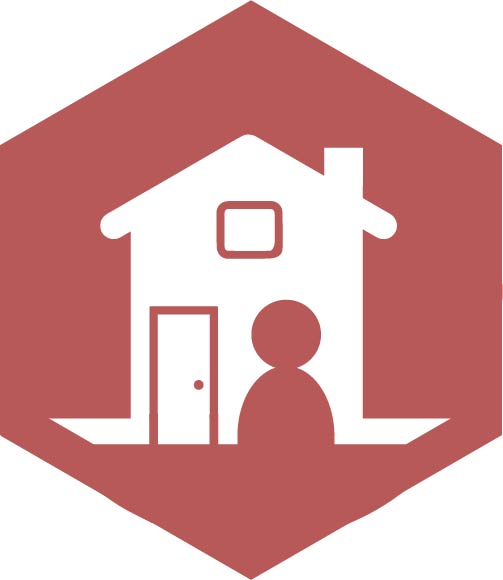

1997
CHEFS
ECS introduces its acclaimed culinary training program, CHEFS (Conquering Homelessness through Employment in Food Services).
1999-2000
ECS PROVIDES SERVICES FOR SROS
ECS partners with the City of San Francisco to provide housing and services for formerly homeless adults at three Single Resident-Occupancy (SRO) properties in the SOMA and Tenderloin neighborhoods, as well as partners with Mercy Housing to provide supportive housing services at a fourth property.


2002
CANON BARCUS COMMUNITY HOUSE OPENS
ECS develops and opens Canon Barcus Community House, a Model supportive housing site with 47 units for families, a childcare facility, an afterschool program. case management, and many support services.
2004-2006
ECS MASTER-LEASES FIVE SRO HOTELS
ECS master-leases five SROs as part of San Francisco's "Housing First" program, enabling more than 577 homeless adults to gain the stability and safety of a home.


2009
BISHOP SWING COMMUNITY HOUSE OPENS
Named for Bishop William E. Swing, who initiated ECS's response to homelessness 30 years ago, ECS-owned Bishop Swing Community House (275 10th St.) is an 88,000 square foot development housing 134 formerly homeless men and women.
2014
1180 4TH STREET
ECS partners with Mercy Housing to open its 10th supportive housing site, as part of a new family residence at 1180 4th Street in Mission Bay with 50 supportive family housing units.


2015
FIRST NAVIGATION CENTER IS LAUNCHED
In March 2015, ECS launches the first Navigation Center in the US in the Mission District.
HENRY HOTEL
In November, ECS adds the Henry Hotel as its 11th supportive housing site in San Francisco.
2017
THE AUBURN OPENS TO HOMELESS MILITARY VETERANS
ECS opens its 12th supportive housing site, the Auburn, with 70 units of supportive housing for homeless military veterans.

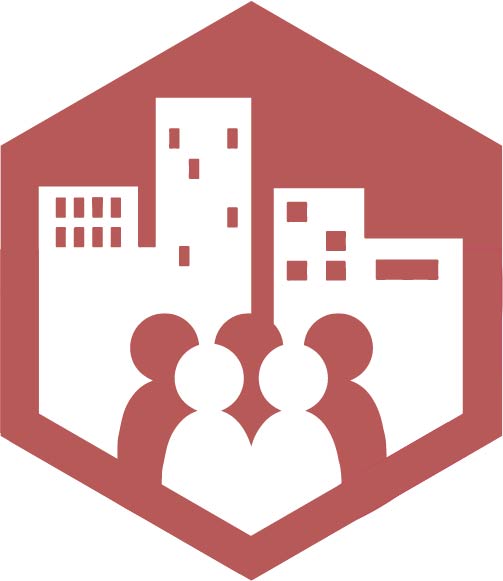
2018
THE MINNA LEE
ECS opens its thirteenth supportive housing site, The Minna Lee, a 50-unit supportive housing building in the South of Market neighborhood.
BRYANT NAVIGATION CENTER
In December 2018, ECS opens an 84 bed navigation center in the South of Market neighborhood with 20 beds designated for women.
ADULT COORDINATED ENTRY
In November 2018, ECS becomes the lead agency operating San Francisco’s Adult Coordinated Entry (ACE) system, the gateway for people experiencing homelessness in the city to be matched with the services they need.
HEALTHY AGING PROGRAM
In November 2018, ECS launches the Healthy Aging Program to better meet the chronic, high-acuity needs of the growing population of seniors experiencing or at-risk of homelessness.
2019
WORKFORCE DEVELOPMENT AND SOCIAL ENTERPRISE UPGRADE
In spring 2019, ECS redesigns its workforce programming to bring CHEFS, Hospitality for All, and Adult Education into an independent program that enhances and expands opportunities for training and employment. As part of this new program, there is a new catering website with a full menu that includes vegetarian, vegan, and gluten-free options: CHEFSKitchenonline.org.
455 FELL STREET
ECS partners with Mercy Housing to open its 14th supportive housing site, a new family residence at 455 Fell Street in Hayes Valley with 33 supportive family housing units.
BEHAVIORAL HEALTH SERVICES
ECS incorporates SF START (San Francisco Shelters Treatment Access and Resource Team) into a new Behavioral Health Services program, which provides coordinated and integrated services in Interim Housing and across all ECS services.

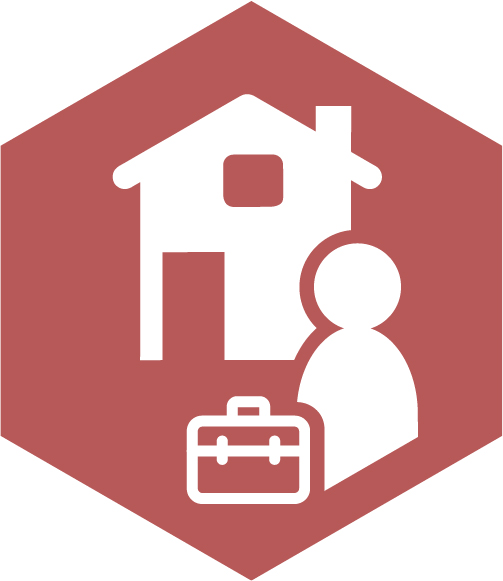
2020
COVID-19 PANDEMIC
The entire world is deeply affected by the COVID-19 pandemic, and ECS strengthens its resolve to ensure that the people it serves receive the very best services. Social distancing affects every program, from Adult Coordinated Entry to workforce development to supportive housing to interim housing. ECS becomes intimately involved in Project RoomKey, securing hotel rooms and providing services for the most vulnerable in our community.
RAPID REHOUSING
In partnership with the Adult Probation Department of San Francisco, ECS launches a Rapid Rehousing program to secure stable housing, and provide financial assistance, job development, and stabilization services to individuals on parole or post release community supervision.
PROJECT HOMEKEY
ECS in partnership with the City of San Francisco receives over $73 million through the State’s Project HomeKey initiative to purchase to San Francisco hotels, the Granada (232 units) and the Diva (130 units) to transform them into Permanent Supportive Housing sites.
2021
RESIDENTIAL REENTRY PROGRAM
ECS launches the Residential Reentry Program (RRP), a new initiative to prevent homelessness for individuals exiting the criminal justice system. The program provides interim housing and services to support successful community reintegration.


2023
CHEFS
ECS opens the CHEFS kitchen at 1068 Mission Street and starts catering services. CHEFS stands for Conquering Homelessness through Employment in Food Services.
